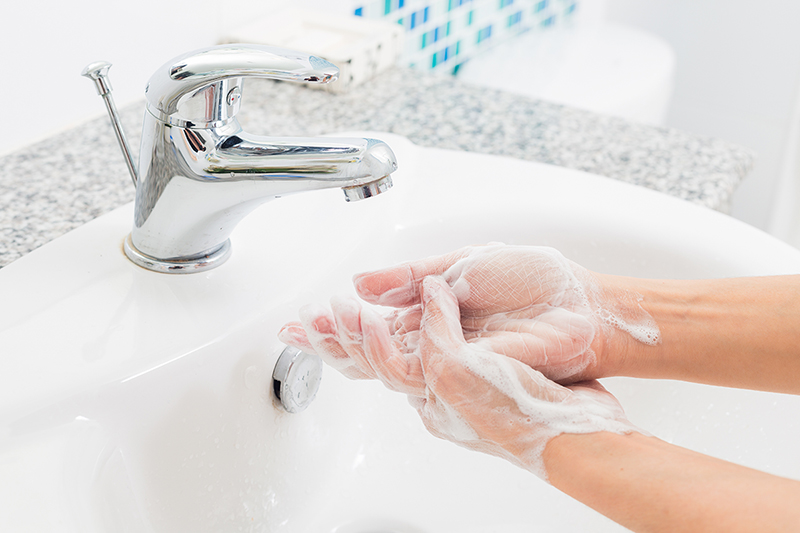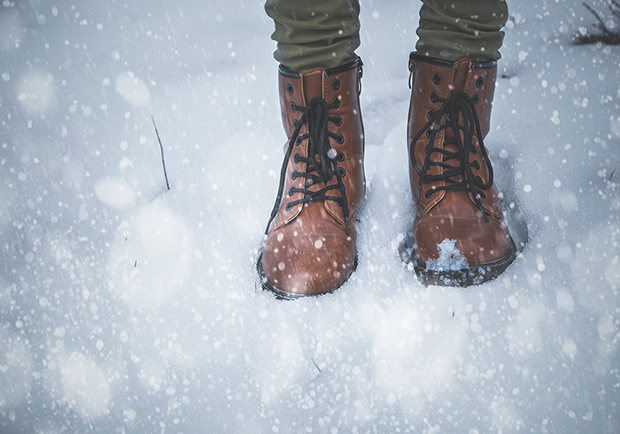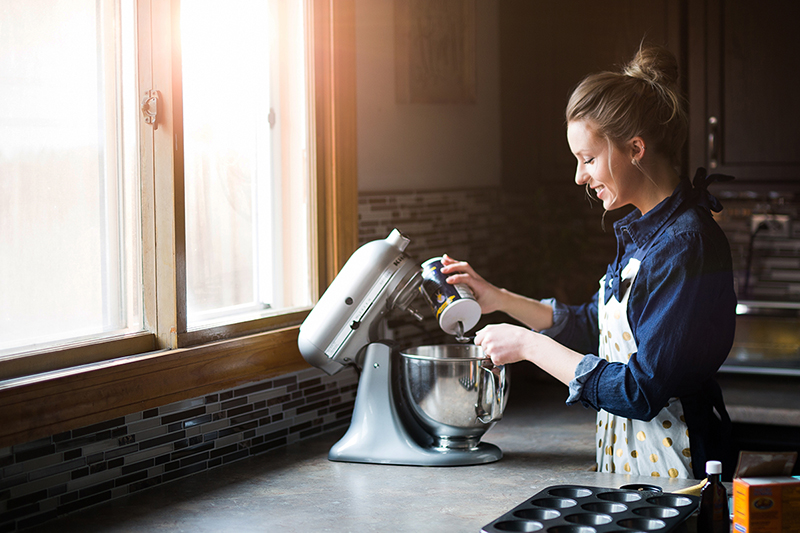Is Hand Sanitizer as Effective as Washing Your Hands?
Take this quiz to know when you should wash your hands and when it's okay to use hand sanitizer.

It might be quick and easy, but sometimes hand sanitizer just doesn’t cut it. So when do you need to add some water and soap? Test your knowledge with this quiz.
Wash or Sanitize?
1. After a quick trip to the grocery store, you climb into your car to drive home.
2. You cut up raw chicken for tonight’s dinner.
3. You are stuck at your desk, tapping away at the keyboard, all afternoon.
4. Everyone at home is sniffling, coughing, and sneezing, but you feel fine.
5. You’ve just used the restroom—hand sanitizer is conveniently placed outside the bathroom door.
Answers
1. Grocery store trip – sanitize
While you should wash your hands upon arriving home, this is a perfect opportunity to pull the hand sanitizer out of your purse and disinfect. Use an alcohol-based hand sanitizer that contains 60% alcohol or greater, and rub the product all over the surface of your hands.
2. Handling raw meat – wash
Anytime you’ve been handling food, especially raw meat or eggs, you need to lather up. According to the Centers for Disease Control (CDC), there is no added health benefit from using antibacterial soap, but choose the soap you like best and spend at least 30 seconds scrubbing.
3. Office germs – sanitize
When you can’t get to the sink, go ahead and sanitize. While you’re at it, wipe down your desk with a disinfecting wipe—the typical worker’s desk is covered in germs that can live on the surface for up to three days. But if you are near a sink, go ahead and suds up those hands and wash away the germs.
4. Family epidemic – wash
Even if you’re not sick, you should wash your hands whenever you encounter illness. Hand washing is key to preventing the spread of illness.
5. Bathroom break – wash
The quick fix is tempting, but the CDC says that soap and water are more effective than hand sanitizers at removing germs like cryptosporidium, norovirus, and clostridium difficile (also known as C. diff). And don’t forget to dry—germs can be transferred more easily to and from wet hands.
The moral?
When in doubt, wash up. Hand sanitizer is useful, but it doesn’t replace washing your hands. If you have access to a sink, it's always better to wash your hands with soap and water. Hand sanitizer might reduce the number of microbes on your hands, but it won't eliminate all types of germs on your hands like hand washing will.
One last thing: When it comes to toddlers, stick to hand washing. The CDC recommends that children under the age of three not use hand sanitizer. Due to their small size, they can absorb enough alcohol through the skin to cause potentially harmful effects.
References
1. Centers for Disease Control and Prevention. “Hand Washing: Clean Hands Save Lives.” Web. 20 Aug. 2014.
2. Colorado Department of Public Health and Environment. “Guidelines for the Use of Hand Sanitizer in School and Child Care Settings”. Web. 20 Aug. 2014
3. Doheny, Kathleen. “Hand Sanitizers: Do They Help Stop All Germs?” Web MD. Web. 20 Aug. 2014.






